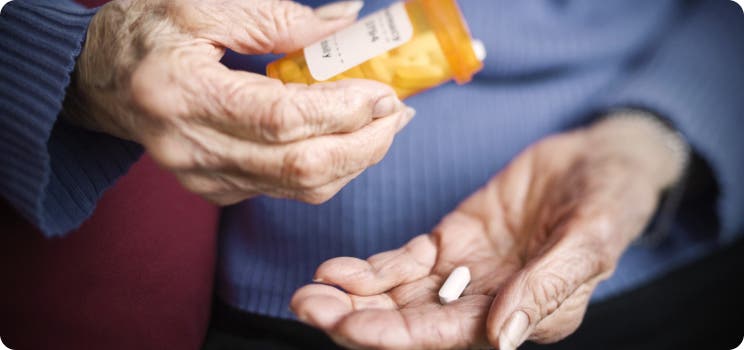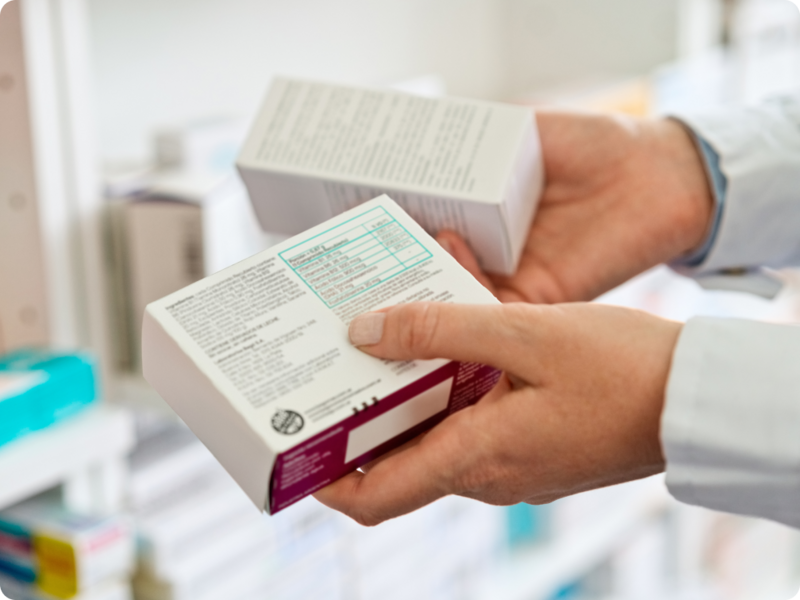Spotlight on patient safety: the global challenge of medication-related harm

Tackling medication errors is vital for patient safety, but how does clinical decision support fit into a broader strategy for achieving safer care?
In the rapidly evolving landscape of healthcare, patient safety has never been more critical. Clinicians and healthcare teams are all striving to provide safe and effective care, yet the complexity of today’s health landscape poses significant challenges. An aging population and a rise in chronic diseases is increasing demand for care, putting stress on the system. And while new treatments and advancing technologies have exciting potential, they can also pose a threat to safe care.
Medication safety
One of the most pressing issues in patient safety today is preventable medication-related harm:
Evidence from a study commissioned by the Department of Health and Social Care in England in 2021 showed that 237 million medication errors occur annually, 66 million of which are potentially clinically significant.1
In the USA, medical errors are the third leading cause of death, with medication errors causing an estimated 7,000 to 9,000 deaths each year, and approximately 1.3 million people experiencing medication related harm.1
Beyond the physical and psychological distress experienced by patients, medication errors erode trust in healthcare systems and impose a massive financial burden globally, estimated at $42 billion annually.2
“Patient safety is a global priority, and healthcare professionals across all disciplines are deeply committed to protecting patients. In the fast-paced environment of modern healthcare, they need the right information at the right time to ensure they can deliver the highest standard of care.”
– Stephanie Smith, Clinical Content Specialist, Micromedex at Merative
The role of evidence-based clinical decision support in patient safety
Given the magnitude of the problem, it is clear that healthcare professionals need robust tools and frameworks to enhance patient safety. Evidence-based clinical decision support (CDS) is one such tool that plays a crucial role in reducing medication-related harm and improving overall patient outcomes. CDS systems can contribute to patient safety in many ways:
- Delivering evidence-based guidance and best practices directly at the point of care, ensuring that healthcare professionals make informed decisions, even in critical situations.
- Providing real-time alerts for potential medication errors, such as drug interactions, allergies, and contraindications, directly within the clinical workflow.
- Supporting consistent, safe care by; standardizing treatment protocols and reducing unwarranted variability in clinical practice.
- Enhancing safety for specialty populations including vulnerable groups such as geriatric patients who are at increased risk of medication errors due to high instances of polypharmacy, or neonatal and pediatric patients whose care can also be complex.
- Facilitating patient engagement for safe outcomes with high-quality patient education materials about health conditions and continued self-care. Tools to support shared decision-making can also support treatment adherence.
“Evidence-based alerts are designed to enhance patient safety, but excessive notifications can lead to alert fatigue and unintended negative outcomes, particularly in environments where clinicians are processing, dispensing, and administering medications. It is critical that CDS tools balance the clinician’s need for information with their desire to remain focused on the important tasks at hand. This can be accomplished by only providing alerts for clinically significant drug interactions, for example.”
– Kimberly Welch, Clinical Content Specialist, Micromedex at Merative
Building a culture of safety
While evidence-based CDS plays an important role, improving patient safety requires a holistic approach. This involves creating a culture of safety within healthcare organizations, characterized by:
- Strong leadership commitment to patient safety and quality improvement.
- Comprehensive training programs for all healthcare staff.
- Transparent reporting and analytic systems for near-misses and adverse events, fostering a non-punitive environment where reporting is encouraged, and learning and improvement are prioritized. Root cause analysis can also support improved processes.
- Engaging patients and their families in safety initiatives and encouraging them to be active participants in their care.
- Leveraging technologies such as electronic health records (EHRs) and predictive analytics to identify and mitigate potential risks proactively.
Conclusion
The global healthcare landscape is becoming increasingly complex, and while this brings new opportunities for advancements in patient care, it also introduces new risks. Healthcare professionals are doing their best to keep patients safe, but they need support.
Evidence-based clinical decision support systems can play a key role in reducing medication-related harm and enhancing patient safety. However, they are one component of a broader, holistic approach. For CDS tools to be truly effective, they must be implemented thoughtfully and safely. By embedding these tools into daily practice and fostering a culture of safety, healthcare organizations can significantly lower risks, reduce avoidable harm, and build trust with their patients.
Learn how Micromedex supports patient safety.
References
- World Health Organization (2023). Global burden of medication related harm in healthcare. A systematic review. Retrieved on September 3, 2024 from https://iris.who.int/bitstream/handle/10665/376203/9789240088887-eng.pdf?sequence=1
- World Health Organization (2024). Medication without harm. Retrieved on September 3, 2024 from https://www.who.int/initiatives/medication-without-harm
Related Articles

The cost of patient safety: 3 considerations for hospital leadership on clinical decision support investments
Clinical decision support systems come at a cost, but of course are critical to...
By Merative | 5 min. read

Tackling avoidable harm in vulnerable populations
How can clinicians ensure patient safety when prescribing medication for elderly...
By Gavin McNatt Pharm.D. | 7 min. read

How can clinicians improve medication safety for look-alike and sound-alike (LASA) drugs?
Medication safety is a critical component of modern healthcare. Medication errors...
By Gavin McNatt Pharm.D. | 8 min. read
Ready for a consultation?
Our team is ready to answer your questions. Let's make smarter health ecosystems, together.
